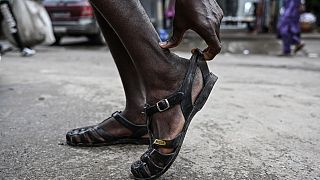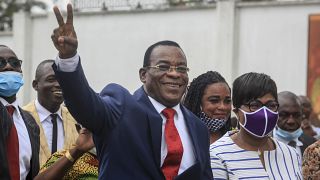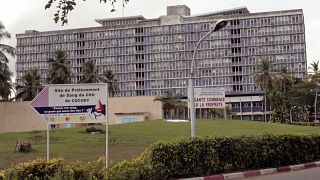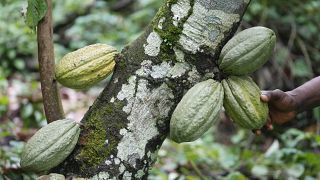Ivory Coast
With Henri Konan Bédié dead at the age of 89 on Tuesday, people in Abidjan are paying tributes to the former Ivorian president by recalling some of his qualities. Bedie was Head of state from 1993 to 1999. The former Ivorian leader had not ruled out running in the next presidential election in Côte d'Ivoire in 2025.
"President Bédié lived a quiet life and left quietly. The greatest challenge facing us today, especially the supports of the PDCI-RDA, is the challenge of maintaining cohesion and unity." says Djédri N'Goran, PDCI administration director.
For N'Cho N'Guessan, a laboratory technician, Bedie's death had taken the country by surprise. "He was a man of peace, a former president. It's they themselves (along with Ouattara and Gbagbo, ed.) who made up the country, so his death really took us by surprise, it hurt us a lot" Nguessan said.
A career politician born in 1934 to a family of cocoa planters, Bedie was the chosen successor to Ivory Coast's founding father Felix Houphouet-Boigny, who ruled over the west African nation from independence from France in 1960 until his death in 1993, aged 88.
Bedie served as president from 1993 until 1999 when he was overthrown by the military in the country's first-ever coup.
Dubbed the "Sphinx of Daoukro" after his native town and economy with words, Bedie demonstrated a skill for political survival. He tried unsuccessfully to return as president in 2000, 2010 and 2020.
"For us in the PDCI, age is an asset. Age unites experience and also competence," Bedie told journalists ahead of the October 2020 presidential election, which was won by current President Alassane Ouattara amid an opposition boycott. Bedie came third with 1.7 percent of the vote.
Bedie, whose rivalry with Ouattara dates back three decades, had not ruled out running in the country's next presidential election in 2025.
Bedie's main influence on national politics had been to promote "Ivoirite" (Ivorian-ness) -- the notion of a national identity and national economy in a country with dozens of ethnic groups.
The nationalist policy discriminated against immigrants in favour of people with two Ivorian parents, affecting countless workers on the country's cocoa plantations.
Bedie and other political leaders had tried to use the measure to prevent Ouattara, who was held to have a father from neighbouring Burkina Faso, from running for president in 1995.
The measure was contrary to Houphouet-Boigny's sustained efforts to uphold unity, and played a part in the armed conflict and turmoil that erupted in 2000 and ended in 2011.
Bedie came third in the 2010 presidential elections, behind Ouattara and the incumbent Laurent Gbagbo.
He supported Ouattara in the post-election crisis, and for his first six years in power, but fell out with him again.
The wily octogenarian had been able to discourage all attempts by younger generations to replace him within his party, which had nominated him as its candidate for the 2020 ballot.
A party executive said he was "a fine tactician who weathered all storms" and was able to convince "the young guns" of the PDCI to support him again.











Go to video
Nigeria’s army chief dies at 56
01:03
Uganda: Victims of lightning strike buried
02:22
Marburg virus: Rwanda issues guidelines as spread of disease worries residents
00:57
John Amos, Emmy nominee for the blockbuster 'Roots,' dies at 84
01:01
James Earl Jones, acclaimed actor and voice of Darth Vader, dies at 93
01:06
At least 40 dead in Israeli strike on designated safe zone in Gaza